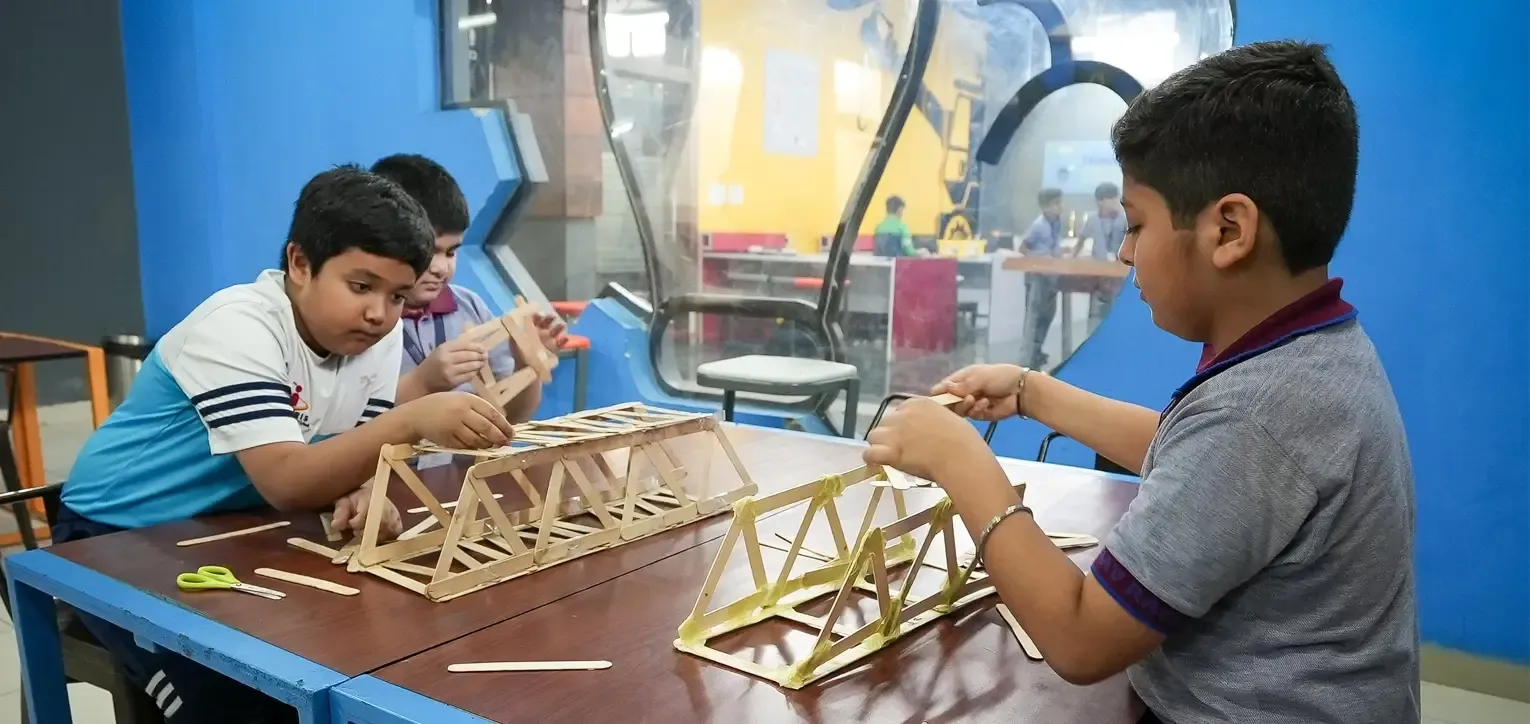Ambitions Active! Let’s Be Astronauts!


‘THAT’S ONE SMALL STEP FOR MAN, ONE GIANT LEAP FOR MANKIND.’ Neil Armstrong
 Editor’s Musings
Editor’s Musings
As per Wikipedia, The word Astronaut is the coming together of two Greek words, astron meaning a ‘star’, and nautes, meaning a ‘sailor’. Astronaut is a person trained, equipped, and deployed by a human spaceflight program to serve as a commander or crew member aboard a spacecraft. Although generally reserved for professional space travelers, the term is sometimes applied to anyone who travels into space, including scientists, politicians, journalists and tourists.
However, astronauts fielded by Russia are typically known as cosmonauts (from the Russian ‘kosmos’ (космос), meaning ‘space’. These Astronauts undergo rigorous physical and mental training to prepare for the challenges of spaceflight, which include weightlessness, exposure to radiation, and isolation from Earth.
The first Astronaut to walk on the moon was Neil Armstrong, an American Aeronautical Engineer. On July 20, 1969, Armstrong with his Apollo 11 crewmate, Buzz Aldrin, landed the lunar module, ‘Eagle’ on the moon’s surface, while Michael Collins orbited above.
As Armstrong landed, he spoke spontaneously, ‘That’s one small step for man, one giant leap for mankind,” as he became the first person to step onto the moon’s surface.
It is an exhilarating feeling to see the interest of students of Manav Rachna International Schools in exploring the enigmatic world of Stars! Many want to become an Astronaut and we salute to their ambition and passion.

 From the Author’s Desk
From the Author’s Desk
After the historical foray into the outer edges of space on his Virgin Galactic rocket plane, Sir Richard Branson said, “I was once a child with a dream looking up to the stars. Now I’m an adult in a spaceship looking down to our beautiful Earth. To the next generation of dreamers: if we can do this, imagine what you can do”.
Most of us have daydreamed about travelling in a spaceship or floating about in the vast expanse of the universe. After all who’s not fascinated by the deep, dark, mysterious universe? At some point in life, every child wants to be an astronaut and experience the exhilaration of exploration.
Space exploration has always been a subject of fascination for humanity. With the advancement in technology, it has become a reality that some people could travel to space and explore the unknown. This has led to the rise of a new profession – an astronaut. However, becoming an astronaut is not an easy feat. It requires hard work, dedication, and perseverance.
Who are astronauts? Derived from the Greek word meaning ‘space sailor’, an astronaut is a professional who is a part of the space crew, destined for the earth’s orbit or beyond. She may pilot the spacecraft, conduct experiments, monitor experiments or maintain the sophisticated station she is on.
However, the journey to space and becoming an astronaut is not just about fulfilling childhood dreams, but it also involves advancing scientific research and exploration. The knowledge and discoveries made in space have helped us understand more about our planet, the universe, and our place in it.
Becoming an astronaut is rigorous and requires long hours of grueling training. Presently ISRO prefer pilots from the Indian Air force for its missions. In the future, when open for civilians, the essential qualification would be a bachelor’s degree in either engineering or any other science discipline from a recognized college or university. An Air force pilot or a professional experience in piloting maybe preferred.
The aspiring astronauts are assessed on prescribed physical, medical and psychological parameters. They must be fit and have perfect visual acuity. They should have specific cognitive and behavioral traits and should be free from any addictions such as drugs or alcohol.

If your heart is set on becoming an astronaut, skills such as coordination, language, communication, leadership, handling maydays and appropriate resilience should be honed. Many universities offer specialized courses like B.Sc. Astrophysics, B. Tech Aerospace Engineering, M. Tech Aeronautical engineering. These courses provide a solid foundation in the fundamentals of space exploration, rocket science, and other related fields.
Besides having the necessary qualifications, aspiring astronauts must pass several assessments. They are assessed on prescribed physical, medical, and psychological parameters. They must be fit and have perfect visual acuity. They should have specific cognitive and behavioural traits and should be free from any addictions such as drugs or alcohol. They should be capable of working in a team and have leadership skills.
Apart from the government agencies, private companies like SpaceX have also become involved in space missions and space tourism, making the field even more exciting. With the involvement of private companies, space exploration has become more accessible to civilians. This has opened up opportunities for more people to become astronauts.
The training for astronauts is exhaustive and demanding. It involves learning about the systems of the spacecraft and how to operate them, survival skills, and simulated spacewalks. The training also focuses on physical fitness, mental toughness, and stress management. The astronauts need to be prepared for any emergency that may arise during the mission. Therefore, they are trained to handle various contingencies, such as fire, medical emergencies, and equipment malfunctions.
However, the rewards of becoming an astronaut are immense. Astronauts get to experience the thrill of space exploration, the breath-taking views of our planet, and the vastness of the universe. They contribute to scientific research by conducting experiments in microgravity environments, studying the effects of space on the human body, and exploring other planets.
The journey to becoming an astronaut is not just about fulfilling a dream. It is about making a contribution to science and society. Astronauts inspire the next generation of explorers and dreamers. They pave the way for new discoveries and advancements in science and technology.
In conclusion, becoming an astronaut is a dream that many people share. It requires hard work, dedication, and perseverance. Pursuing higher education in relevant fields, having practical experience, and passing the necessary assessments are essential steps towards becoming an astronaut. The rewards of becoming an astronaut are immense, and they pave the way for new discoveries and advancements in science and technology.
Therefore, space exploration is not just about fulfilling childhood dreams or providing a new form of entertainment; it is also about advancing scientific research and understanding more about our planet and the universe. The development of technology and sustainable practices in space exploration will continue to have a significant impact on several industries and the world as a whole. As Sir Branson rightly pointed out, the possibilities are endless, and it is up to the next generation of dreamers to imagine what they can achieve.
Author: Ms. Banya Sur Chaudhary
Designation-TGT Science, Manav Rachna International School Noida.

